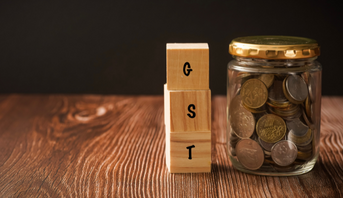
The 54th GST Council is scheduled to meet on September 9 in New Delhi to deliberate upon a proposal to clarify that an 18% GST should be levied on payment aggregators whose platforms are used for digital payment transactions of less than ₹2,000 via debit cards, credit cards, and other payment methods, according to sources.
Sources indicate that this clarification is anticipated following detailed deliberations by the council-nominated fitment committee.
“The fitment committee is of the view that payment aggregators such as PineLabs, Razorpay, etc, whose platforms are used to conduct digital payments—such as QR code scanning, POS machines, net banking, etc.—for transactions of less than ₹2,000 via debit cards, credit cards, etc, will need to pay GST on the income earned from facilitating these transactions,” sources said.
Therefore, the income earned by payment aggregators is expected to be charged at 18% GST, as per the fitment committee's recommendation. This proposal will be presented to the GST Council, which will decide whether to accept, reject, or defer it before it can become law, sources added.
The fitment committee believes that this GST is unlikely to impact consumers directly.
What is the current norm?
At present, payment aggregators are exempt from GST on transactions below ₹2,000. This exemption was introduced in 2017 to promote digital payments, with the aim of avoiding additional costs of GST on smaller transactions for merchants using credit or debit cards and other payment card services.
The government intended for the exemption to prevent merchants from being burdened with GST costs on smaller value transactions while recognising the critical role payment aggregators play in facilitating digital transactions. These aggregators, regulated by the RBI, handle funds and provide an interface with merchants to ensure card payments are processed.
Who are payment aggregators?
Payment aggregators are involved in managing funds and interfacing directly with merchants to complete card payments. They cater to a wide range of merchants across the country, including small businesses like tea stalls and cobblers and large e-commerce players.
The business model of payment aggregators involves charging a small fee on each transaction, given the high volume of transactions they process. This model allows merchants to avoid having their payment gateways by using the aggregators' platforms to handle digital payments.
Why payment aggregators should be taxed - The story so far
According to sources, “The fitment committee is of the view that these payment aggregators, as per the definitions in the law, are not banking companies, financial institutions, or NBFCs. Rather, they are intermediaries.”
“The law states that all intermediary services should be liable for GST. Given this, the fitment committee has concluded that the services provided by payment aggregators for transactions up to ₹2,000 through credit cards, debit cards, charge cards, or other payment cards over digital networks are not eligible for GST exemption,” sources said.
However, experts believe that any additional tax on payment aggregators is likely to be passed on to consumers by the merchants.
It remains to be seen whether the GST Council will adopt the fitment committee's view or reject the proposal, as the fitment committee does not have final authority; it is the GST Council and its members who will collectively discuss and make the final decision.